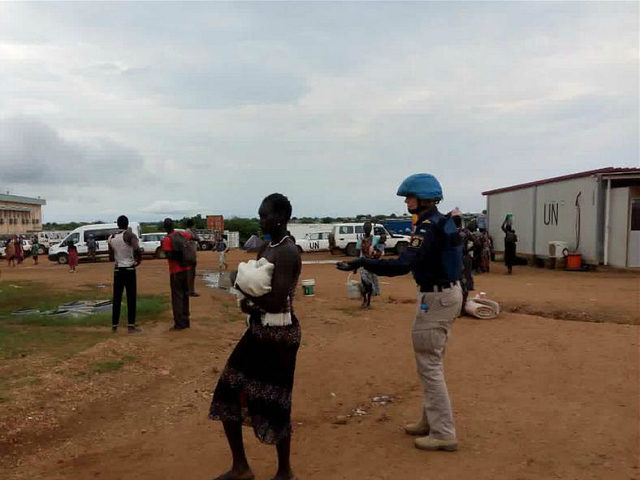It remains uncertain how long a shaky ceasefire will hold in South Sudan, a nation that the Obama administration helped birth.
The truce was implemented as the fledgling nation descends further into chaos.
“Even if the precarious ceasefire in the capital holds a sustainable, countrywide peace will be hard to secure,” reports The Economist.
It appears that a civil war that had erupted in December 2013 continued to rage despite a peace deal reached in August 2015 between South Sudanese President Salva Kiir and his sacked Vice President Riek Machar.
The war continues to be fought primarily between South Sudan’s most prominent ethnic groups: the Dinka, led by President Kiir, and the Nuer, under Vice-President Machar.
In the words of then Sen. John Kerry (D-MA), the Obama administration helped “midwife the birth of this new nation,” which gained independence from Sudan in July 2011, while Hillary Clinton was serving as U.S. Secretary of State.
BBC reports:
A ceasefire appears to be holding in South Sudan’s capital, Juba, after four days of heavy fighting between rival forces left more than 270 people dead.
The city is quiet, with no reports of helicopter gunships in the sky or tanks on the streets but shops remained shut.
President Salva Kiir and his rival, Vice-President Riek Machar, announced a ceasefire which came into force on Monday at 15:00 GMT.
The Star newspaper from South Sudan’s neighbor Kenya blamed the latest round of violence that killed an estimated 272 people on a “false” Facebook post.
According to the newspaper:
A “false” Facebook post on South Sudan’s First Vice President Riek Machar account caused the death of 272 people following renewed fighting among rival forces.
The country’s embassy in Nairobi claimed James Gatdet, an official in the joint administration allegedly told Machar’s army — through an update on the account — that he had been detained by President Salva Kiir forces at the palace.
Ambassador Chol Ajongo said it is this information that led the army to respond, causing the fighting in the capital Juba which entered its fifth day on Tuesday.
The short history of South Sudan has been marred by civil war. Referring to the recent spate of attacks, President Barack Obama’s National Security Adviser Susan Rice said:
This senseless and inexcusable violence — undertaken by those who yet again are putting self-interest above the well-being of their country and people — puts at risk everything the South Sudanese people have aspired to over the past five years.
The targeting of civilians and attacks against the United Nations Mission in South Sudan, diplomatic installations, NGOs, and humanitarian actors is intolerable. Such attacks could constitute war crimes and other serious international crimes. The United States will hold fully accountable for those committing atrocities or who impede efforts to halt the fighting.
For several months now, the peace agreement signed last August has meant very little in some regions of South Sudan.
BBC reports:
Tensions have been high since April, when Mr Machar returned to Juba under a peace deal following a two-year civil war. He took a 1,300-strong protection force with him and they were supposed to start joint patrols with forces loyal to President Kiir. But a lack of trust between the two sides means the patrols have not begun…
There are concerns that what we are seeing is a repeat of what happened in December 2013. The two-year civil war started after clashes between rival soldiers in Juba and degenerated into nationwide conflict in which tens of thousands died.
An unnamed United Nations official told various news agencies in March that up to 50,000 people had died in the South Sudan conflict that kept raging despite the peace deal.
Some analysts have suggested that more people have likely died in South Sudan since the civil war there erupted in December 2015 than during the same period in Syria.
The United States, Kenya, and Uganda indicated that they were preparing to evacuate their citizens from South Sudan, notes BBC, later adding, “The UN called for an immediate arms embargo, as well as attack helicopters to strengthen its 13,000-strong peacekeeping force.”
BBC quotes the UN as saying that the recent fighting displaced an estimated 42,000.

COMMENTS
Please let us know if you're having issues with commenting.